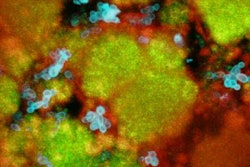In a follow-up to a study conducted one year ago, researchers at the Oregon Health & Science University (OHSU) School of Dentistry have determined that certain genetic strains of bacteria are dominant in children one year after treatment for microbial-caused plaque and tooth decay (Journal of Oral Microbiology, December 14, 2012).
Six new previously undetected minor strains also were identified, according to the university. In addition, the research team found that certain bacterial strains in children are resistant to xylitol, a popular product used to reduce plaque and suppress bacterial growth.
The team examined the profiles of mutans streptococci (MS) genotypic strains from children initially in the study who had been diagnosed with severe early childhood caries (ECC). Children in good health, ages 3 to 5, who underwent full-mouth dental rehabilitation therapy while under general anesthesia in the Pediatric Dental Surgery Clinic at OHSU's Doernbecher Children's Hospital were the focus of the study.
Therapy for the children included application of chlorhexidine gluconate, followed by amalgam, composite, and stainless steel crown restorations, as well as formocresol pulpotomies, extractions, sealant application, dental prophylaxis, and sodium fluoride varnish application. Plaque samples were then taken from each participant during the one-year recall visit and compared with specimens collected during three periods: prior to the start of dental rehabilitation therapy, within the two- to four week postrehabilitation visit, and at the six-month recall visit.
Of the children available for their postrehabilitation recall visits (7 total), the team identified 37 genotypic strains of Streptooccus mutans, two genotypic strains of S. sobrinus, and seven non-MS strains during the entire study, including the appearance of six new MS strains found only at the one-year collection.
In the follow-up study, the researchers identified caries-active children who possess MS genetic strains with different xylitol resistance properties, with some strains exhibiting increased cariogenic potential, according to principal investigator Curt Machida, PhD, an OHSU professor of integrative biosciences and pediatric dentistry.



















